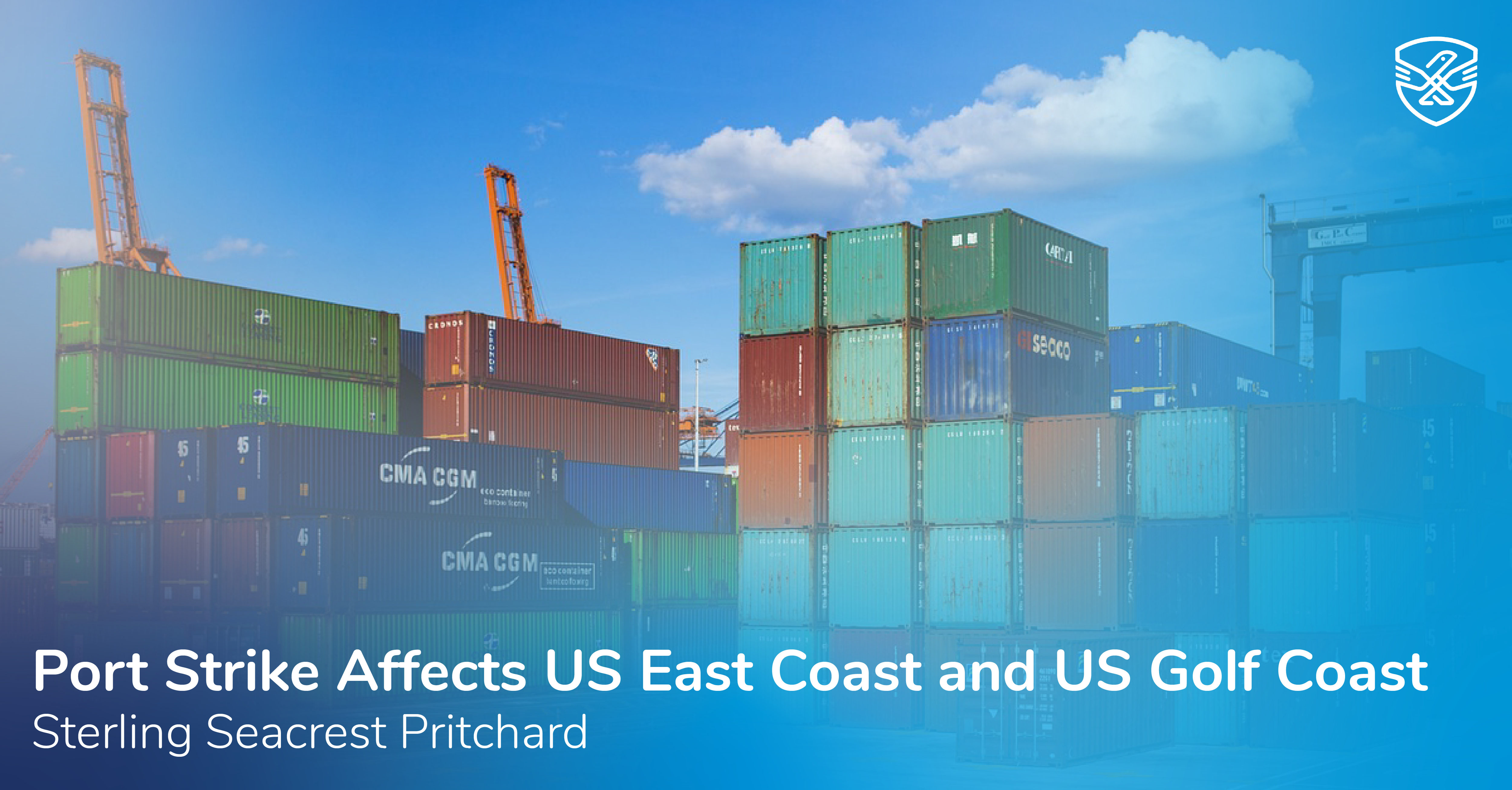
Port Strike on the US East Coast and US Gulf Coast
Written by Garret Lazenby, Lead Transportation Partner
Effective 12:01am on 10/1/2024, there is a massive dockworker strike affecting the U.S. East Coast and U.S. Gulf Coast ports. This is in conjunction with the aftermath of Hurricane Helene that has impacted many parts of the country. Whether a deal comes together soon or days or weeks, this will cause massive supply chain and trade disruptions. What some might be thinking is how does that impact my business? Whether your company is a transportation or logistics company or the buyer of transportation and logistics services, there will be impacts. Transportation companies that deal with cargo moving through the ports may have a dramatic drop in volume and then an increased demand in services. Warehousing companies may have an increased demand of services. Buyers of transportation and logistics services i.e. manufacturers, distributors, wholesalers, retailers, producers, end users, etc. will have delays, loss of revenue, and possible increased costs. The following are some key areas to think about and some commentary around them. As always we are happy to walk through these scenarios with you.
1. Does my business have supply chain or trade disruption insurance?
Supply Chain and Trade Disruption Insurance is a very uncommon insurance coverage purchased in the U.S due to the costs, time, planning, controls, and insurance company capacity required to address the Supply Chain and Trade Disruption Risks.
2. Will my Business Interruption Insurance protect my company from the risks of the Port Strike and the ensuing losses and expenses?
Various Insurance Policy Types offer Business Interruption Coverage such as Property Insurance and Cyber Insurance. In order to trigger the Business Interruption Coverage in these policies a covered Property Peril or Cyber Insurance Peril will need to be triggered first such as fire damage to a covered building or a covered Ransomware attack by a cybercriminal group.
3. What if my business is a transportation company and I have loss of revenue due to the Strike?
Many surface transportation companies either asset based or non-asset based purchase Automobile, Cargo, General Liability, Umbrella, or some form of 3rd Party Liability/Freight Broker Auto Legal Liability Coverage. These types of insurances generally don’t offer any type of Business Interruption Coverage.
4. What happens if my business has loss or damage to our cargo while in transit?
There are some key areas we would recommend to review in your Ocean Cargo Policy, and we are more than happy to review these with you.
- Strikes, Riots, and Civil Commotion Coverage
- Consolidation, Deconsolidation and Forwarding Coverage and confirm how many days is given.
- Valuation Clause Wordings.
- Accumulation Clause
- Sue and Labor
- Paramount Warranties
5. What are some considerations my business should take?
- Utilizing US West Coast Ports for new shipments
- Diverting Current Routes to US West Coast Ports
- Work with transportation providers for alternative routes or using Air Freight for more urgent shipments.
- Proactively work with your Transportation and Logistics Companies to come up with a plan for when the Strike ends.
- Transportation and Logistics Companies handling the East Coast and Gulf Coast Cargo should also plan and trainemployees on an efficient and safe way of handling the influx of the Cargo Once the Strike Ends.
- Due to the congestion and delays at ports and surrounding areas, theft-related instances are likely to increase during this time. Transportation and Logistics providers and buyers of Transportation and Logistics Services should take allprecautions to mitigate cargo theft.
- Review contracts to determine your exposure to delays and legal liabilities.
Garret R. Lazenby | Partner
d: 678-424-6505 | [email protected]
